By Danielle Anderson, Senior Government Policy and Advocacy Manager, Christianson, PLLP
As global efforts to reduce greenhouse gas (GHG) emissions intensify, biofuel producers grapple with increasingly stringent sustainability mandates. These requirements, emerging in major markets such as Canada, California, Oregon and Washington, aim to ensure biofuels are produced with transparency and environmental responsibility.
Canada's Clean Fuel Regulations
Canada’s Clean Fuel Regulations (CFR) enforce strict GHG reduction targets on transportation fuels. Producers, importers and suppliers must now submit annual declarations, verifying their feedstocks meet strict sustainability standards.
The CFR’s cornerstone is the Land Use and Biodiversity (LUB) criteria, which applies to both domestic and international producers. U.S. biofuel producers exporting to Canada must ensure their feedstocks are not sourced from ecologically sensitive areas, avoid contributing to indirect land use change (ILUC), and were not cultivated on land cleared after July 1, 2020. U.S. producers benefit from automatic compliance due to recognized agreements, but they must still submit annual declarations verifying adherence to these standards.
California's LCFS
New proposed amendments to California’s Low Carbon Fuel Standard (LCFS) continue to raise the bar for biofuel producers. One such proposal introduces rigorous third-party sustainability certification requirements for biomass feedstocks.
California’s Air Resources Board (CARB) is also increasing focus on ILUC mitigation. Despite industry objections, CARB supports new criteria that would phase in over the next few years. These criteria require that biomass feedstocks be accompanied by sustainability certificates from the first collection point through to the fuel producer.
OR and WA: Expanding Sustainability Efforts
Both Oregon and Washington have implemented similar low-carbon fuel programs which generally align with California’s program. Oregon’s Clean Fuels Program (CFP) and Washington’s Clean Fuel Standard (CFS) are likely to incorporate sustainability requirements that emphasize land use considerations and ILUC risks; however, they do not plan full adoption of California’s biomass declarations and certification program in the current amendments.
Key Comparisons
While the sustainability requirements in Canada, California, Oregon and Washington share common goals, specific implementation details vary:
- Feedstock Origin Tracking: Canada and California require detailed declarations and continuous tracking of crop-based feedstock origins, while Oregon has proposed adding an attestation letter for specified source feedstocks (SSFS) to its program.
- ILUC Mitigation: All regions emphasize ILUC mitigation. California’s approach is particularly stringent, aimed at curbing the expansion of crop-based biofuel feedstocks and introducing caps, such as a proposed 20% limit on soy, canola and sunflower oils.
- Certification Requirements: California’s requirement for third-party sustainability certification for biomass feedstocks is unique, adding complexity for biofuel producers. Canada’s CFR uses annual declarations and nationwide review and approvals instead of ongoing third-party certification, which eases the compliance burden, but still mandates rigorous supply chain transparency.
- Verification and Auditing: California, Oregon and Canada currently require annual third-party audits of fuel producers’ data. Washington’s proposed amendment would implement similar verification requirements, likely coming into effect by early 2025.




